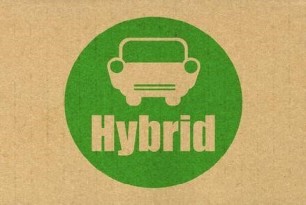Blog Details - Magma Insurance

How are hybrid cars a boon for our environment 9th November 2021
Hybrid vehicles are the next significant advancement in the automobile's evolution. They combine the best features of both classic internal combustion engine vehicles and modern-age electric cars. In practicality, both electricity and petroleum power the motor of a hybrid vehicle, making them incredibly fuel-efficient. As a result, a hybrid automobile consumes less than half the fuel as a regular family car. This also means that they are not only cost-effective but also environmentally sustainable.
Unlike electric vehicles, hybrid cars don't have a plug-in system for charging the batteries. Instead, these vehicles use kinetic energy to charge the batteries. Hybrid vehicles are gaining popularity and are making headlines of a green revolution worldwide. In this article, we'll see precisely how.
1. Lower carbon footprint:
Hybrid vehicles lower carbon emissions while boosting fuel efficiency by combining power from both electricity and fossil fuels. The vehicle generates its power with the help of energy stored in its lithium-ion batteries and supplied to electric motor generators on the electric side. These motors provide power to the wheels while simultaneously generating electricity through regenerative braking. Hybrid vehicles do consume gasoline, but they do it with small engines that produce low emissions. The engines are either employed to create electricity for the batteries or power the electric motors.
2. Hybrid vehicles have better mileage:
In addition to advancements in engine technology, characteristics like lighter chassis material, stronger tyres with greater pressure, better aerodynamics, and a smaller fuel tank helps a hybrid car be more efficient and save money on petrol, contributing to reduced usage of fossil fuels.
3. Hybrid cars make little to no noise:
Among ecologically sustainable automobiles, hybrid vehicles occupy centre stage. They are known for being extremely quiet in urban traffic circumstances, in addition to emitting less pollution. They may be able to lessen urban noise pollution as a result of this. You might not hear anything at all if a hybrid car drives down the street. It’s that swift and silent!
4. Recycled material goes into the making of hybrid cars:
To build automobile components, hybrid car manufacturers blend automotive eco-plastic with regular plastic. This is not only environmentally beneficial but also cost-effective. Its environmental impact is most apparent when looking at the overall effect of mass manufacturing rather than on a case-by-case basis.
5. Car battery production can be environment friendly:
Although hybrid automobiles do not contribute much to road pollution, the production of their batteries can be hazardous if done incorrectly. But the corporations are developing more environmentally friendly production lines to ensure minimum pressure on the planet.
Also, suppose you compare the carbon emission caused by the production of batteries to the carbon emission of cars running on fossil fuels in the longer run. In that case, hybrid vehicles prove to be more sustainable.
Finals Thoughts
Despite being still a relatively new technology, Hybrid vehicles will only get more advanced and sustainable as time goes on. Moreover, as the pollution created by ICE cars becomes a more significant problem, hybrids provide a rational option for a cleaner future.
Like traditional cars are subject to mandatory insurance in our country, hybrid vehicles are no exception. They need to have a motor insurance too. So if you're planning to join this electric revolution happening in our nation, have thorough research on the best car insurance online that provides an insurance cover to your next hybrid vehicle.
Click HERE to know the best car insurance online.
Disclaimer: The information provided above is for illustrative purposes only. To get more details, please refer to policy wordings and prospectus before purchasing a policy.
